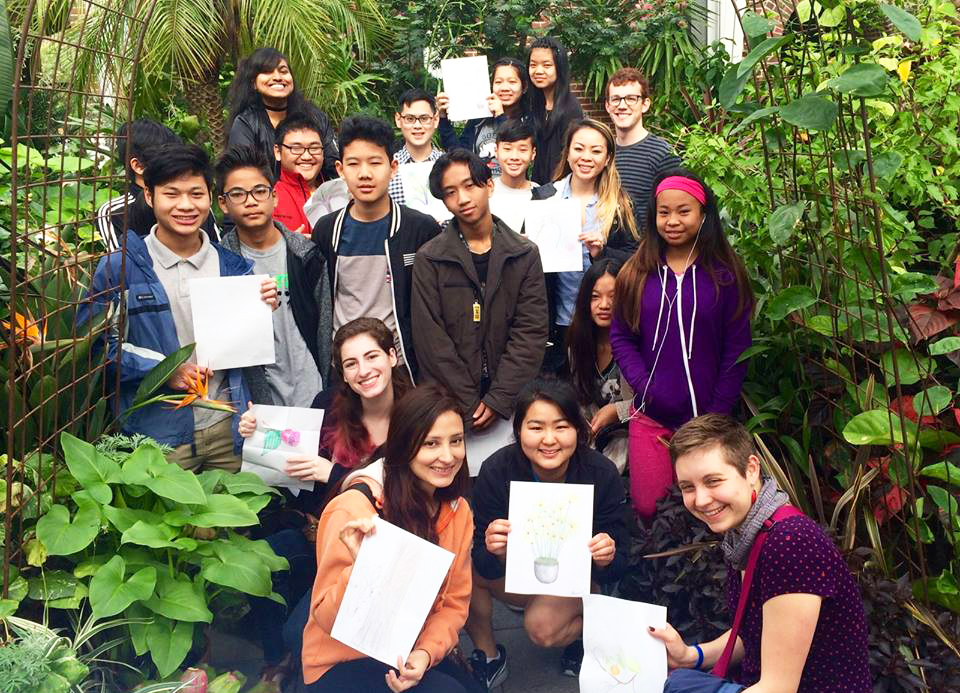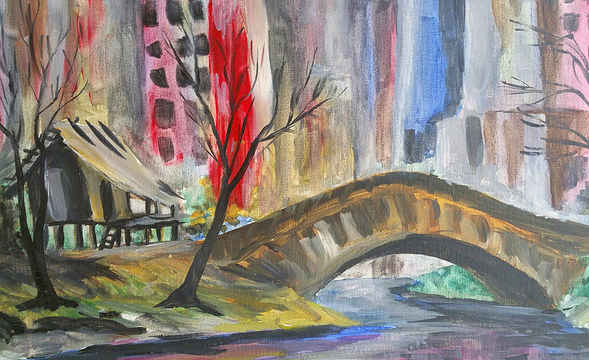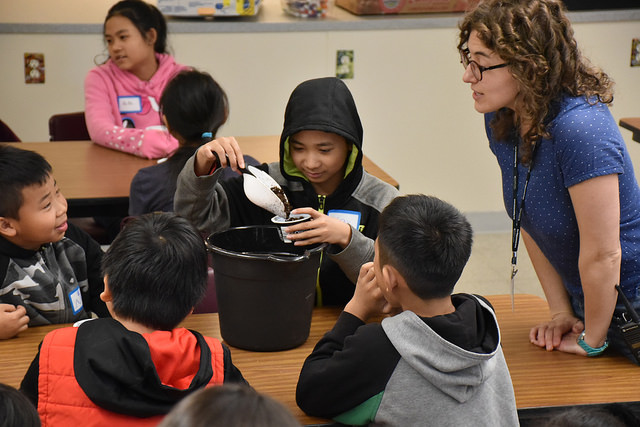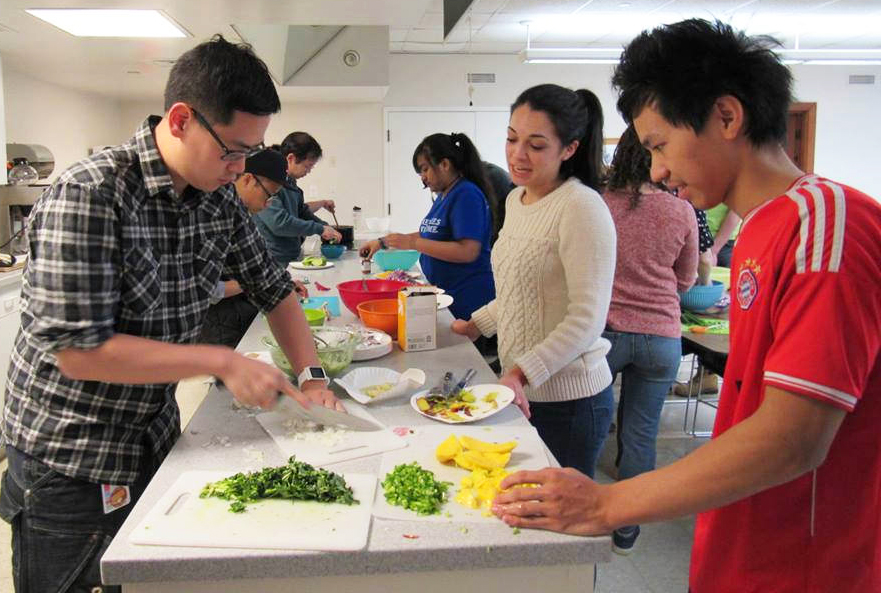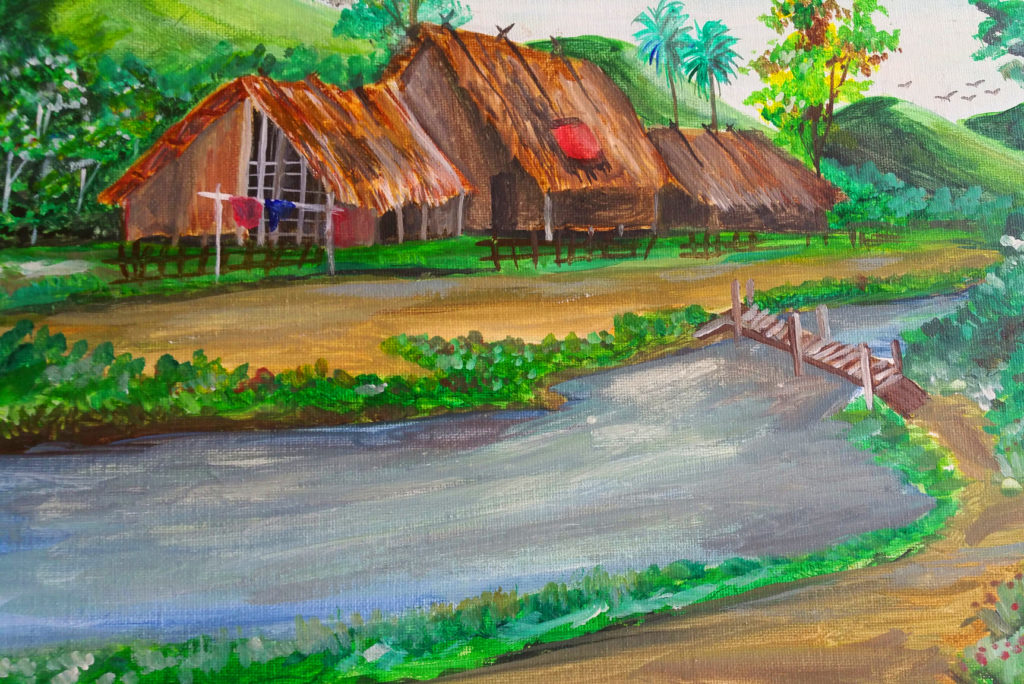Members of the Youth Group in New England Botanic Garden at Tower Hill’s Orangerie. (Photo by WRAP)
Imagine living in place with limited possibilities, where poverty and hardship are constant. Relocating to a land of opportunity on the other side of the world inspires hope, but also presents challenges. Almost everything you see is different. How would you balance your old life with the new?
In recent months, a partnership has sprouted between a group of Burmese refugees and staff at New England Botanic Garden at Tower Hill. For members of the Worcester Refugee Assistance Project‘s youth and children’s groups, spending time at the Boylston nonprofit, where the goal is to connect people with plants, helps ease the transition of relocating to a new country.
“Here at New England Botanic Garden at Tower Hill, we recognize the value plants can bring to people’s lives,” said New England Botanic Garden at Tower Hill CEO Grace Elton. “Gardens can improve mental and physical health, while providing joy and a sense of community. And it’s important for cultural institutions like ours to reach out to underserved populations and make sure they know that they are welcome here, so we all can enjoy the benefits of nature.”
Artist Hay Reh paints the hope young refugees can feel coming to the United States.
These young people – roughly three dozen from ages 5 to 19 – grew up in rural settings where the struggle to find daily sustenance resulted in strong connections with nature. Burma has suffered from civil conflict since the 1960s, causing members of oppressed ethnic minority groups to flee to refugee camps in Thailand. Today more than 200 Burmese families have relocated to Worcester, home to the most refugees in Massachusetts. For these families, the urban environment of an American city like Worcester is worlds apart from their previous homes in Burma and Thailand.
Once in America, artist Hay Reh shows the difficulties combining thoughts of the past and the present.
Kirsten Swartz, New England Botanic Garden at Tower Hill’s exhibitions and events coordinator, learned about refugee resettlement while working at another museum. Upon her arrival to New England Botanic Garden at Tower Hill in 2016, she began reaching out to groups in Worcester that support regional refugees, asking if there was anything a botanical garden could do to help.
Swartz connected with the Worcester Refugee Assistance Project through the University of Massachusetts Medical School in Worcester, where students founded a youth group and children’s group in an effort to support and better understand the needs of refugees new to this country. Together with Alice Puccio, New England Botanic Garden at Tower Hill’s school, youth and family programs manager, they organized a pilot program exploring art, horticulture, and cooking at bucolic New England Botanic Garden at Tower Hill, just eight miles from the downtown medical school.
The early results were encouraging and exciting.
Members of the Children’s Group prepare to plant seeds with New England Botanic Garden at Tower Hill’s Alice Puccio.
“Museums are social spaces where these young people can experience low pressure and real world experiences, which helps with language and learning regional customs,” said Swartz. “Because we’re at a garden, surrounded by woods, they can reconnect with nature since it was such an important part of their lives before they arrived here.”
Some of the older youth are in lower grades in Worcester because their language skills are still catching up, but at New England Botanic Garden at Tower Hill there’s common ground between all ages as they explore the gardens, walk the trails, and take in the distinctly New England views. Over several visits they drew the unusual plants they found, studied the gardens and the landscape, and at their final class they learned new cooking skills while being shadowed by the Telegram & Gazette for an article.
“This is like so pretty, and cool, and awesome, and dope,” Noraishah Yusuf, 20, told the reporter. “That’s why youth group is awesome. They get me to see everything that is new to me.”
The Youth Group prepares a meal at New England Botanic Garden at Tower Hill with volunteers from UMass Medical School. (Photo by WRAP)
So many shared human experiences and traditions center on plants, food, and art. These areas of common ground help to overcome the effects of cultural or language barriers.
Hay Reh, a 22-year-old member of the Youth Group, is a prolific artist, putting brush to canvas. His paintings, now on display in the Reception Area of New England Botanic Garden at Tower Hill, convey complex nostalgia for life in Burma and refugee camps in Thailand, layered with a sense of hope in the promise and reality of his new life in America. Hay Reh expresses these emotions through the lens of changing landscapes, rural and urban, some real, imagined, and remembered.
Hey Reh’s art is on exhibit now at New England Botanic Garden at Tower Hill.
The Worcester Refugee Assistance Project helps young refugees transition to a self-reliant life here in the United States, supporting their education, fostering special talents like Reh’s, and connecting them to cultural institutions like New England Botanic Garden at Tower Hill.
Swartz has high hopes for the collaboration.
“There is so much we can do to help,” she said while admiring Reh’s artwork. “Here at New England Botanic Garden at Tower Hill we’re in the perfect place to reach out.”
A Burmese village by artist Hay Reh, 22, depicts life before coming to America.

